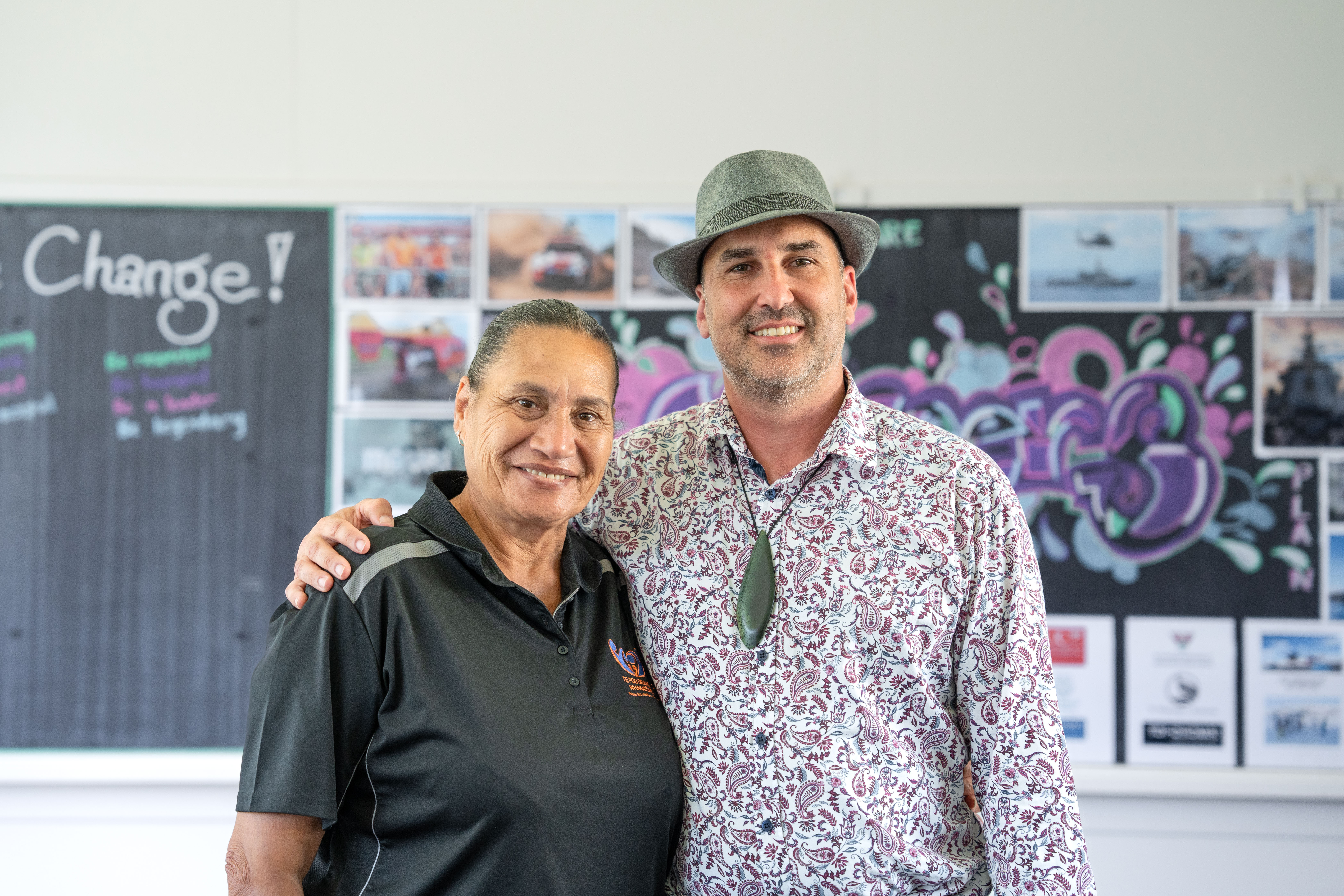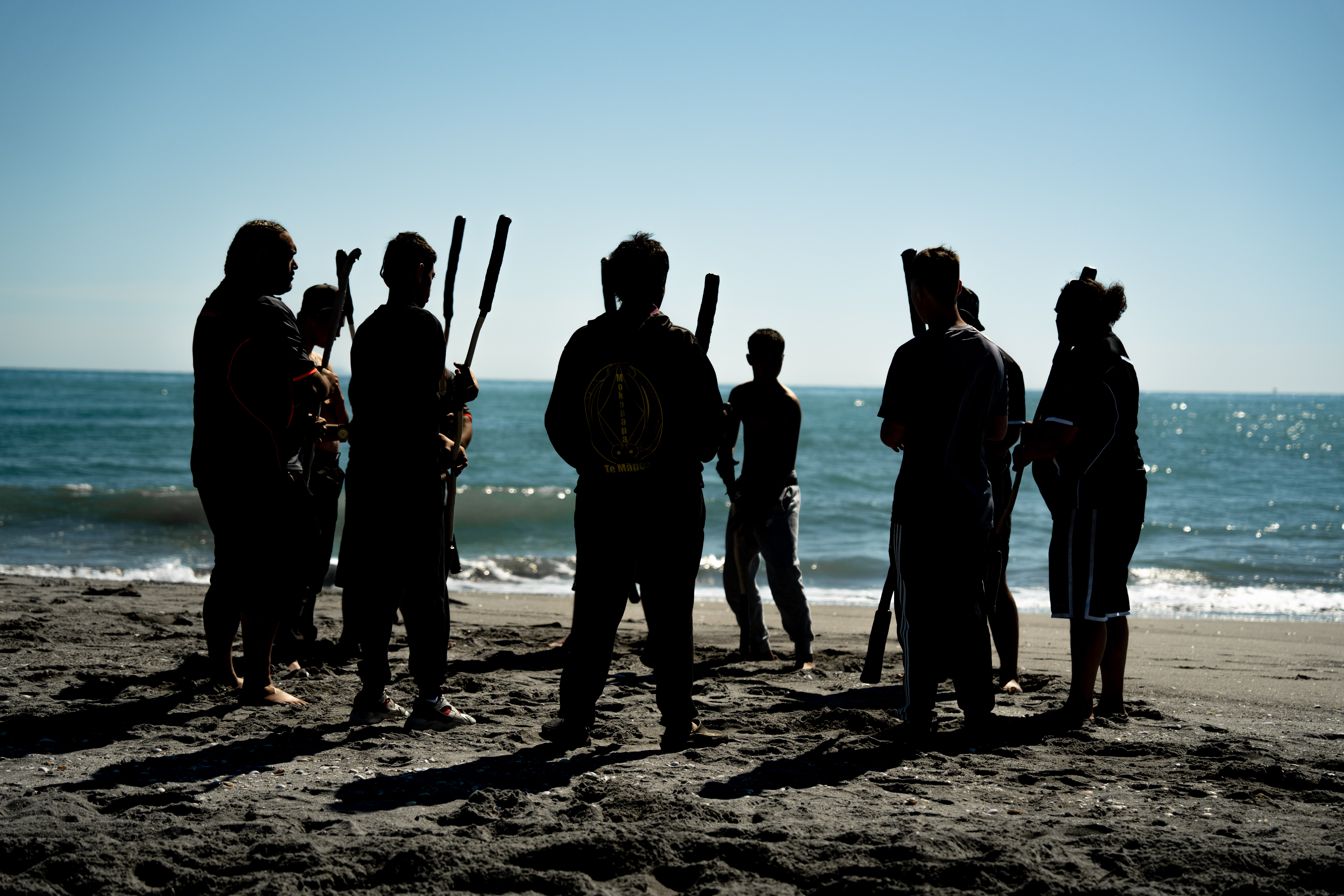Iwi-led Youth Justice prevention programme: Oranga Rangatahi
Published: May 2, 2023 · Updated: May 2, 2023
Oranga Rangatahi is an iwi-led youth justice prevention programme in Ōpōtiki, Bay of Plenty. Rangi Williams and Karl Severinsen both work in the programme.

A good day is when the kids get in the van
Social Worker Rangi William’s day starts at 5am with a bit of prep. By 8am she’s on the road, driving a van around the outskirts of Ōpōtiki to collect teenagers for the Oranga Rangatahi programme. Some aren’t home, so she drives around the neighbourhood to track them down. Many are still asleep, so she gets them out of bed.
'If we just get one kid, that’s one off the street,' says Rangi, or ‘Nan’ to the kids. 'When they are at the programme we know they’re fed, they’re educated, they’re loved. So yeah, a good day for me is when the kids get in the van.'
Oranga Tamariki is involved with 6 Oranga Rangatahi programmes across the North Island, with a 7th opening shortly in Kawerau. They are preventive youth justice programmes that are supported by iwi, police, and local schools.
Most of the young people are between 13 and 16 years old and left mainstream education at intermediate school, or even earlier. They are referred from local schools, iwi, and youth aid. Many are already coming to the attention of the police.
'I call them my gems,' says Rangi. 'They may need a bit of a polish, but they are precious.'
We don’t want to be the ambulance at the bottom of the cliff
Karl Severinsen is Rangi’s manager. He’s been working for Oranga Tamariki for more than 20 years, mostly in youth justice. He says the Oranga Rangatahi programmes are different from most of the work that Oranga Tamariki does.
'It's normally the ambulance at the bottom of the cliff, but this is different,' says Karl. 'Oranga Rangatahi is about getting in early before young people get in trouble with the police and working alongside others to try and keep them out of the system.'
It’s education, but with a difference. While the young people earn NCEA credits, numeracy can be taught at the local pool with stones using different numerical units. They learn everything from whakapapa to carving, sexual health, how to garden and grow their own kai.
And so far, it seems to be working. In the last 3 years, 43 kids have gone through the Ōpōtiki programme, and only 2 have gone on to appear in the Youth Court. Across the 6 programmes, less than 15% of young people are ending up in court.
'We’ve had kids who have never been to high school earn NCEA Level 1 credits in the programme. We’ve had rangatahi move into employment, we've had rangatahi who struggled to engage positively with their peers and their parents change their whole way of being – and that's amazing,' Karl says.

Partnership means more than words on paper
The programme is led by Whakatōhea and run on iwi land.
'The relationship we have with Whakatōhea is not just words on a bit of paper. It's not just a contract for the iwi to provide a service,' says Karl. 'It all comes down to relationships and involving the people like Rangi, who live and breathe their community and are passionate about the rangatahi that they work with,' he says.
Rangi says Whanaungatanga and connection are important for the young people she works with.
'The rangatahi that I have on the programme, I have whakapapa connections with them. I'm literally their nan, and that's what they call me. I love them as a nan, they're like an extension of my whānau. That's why it works,' Rangi says.

